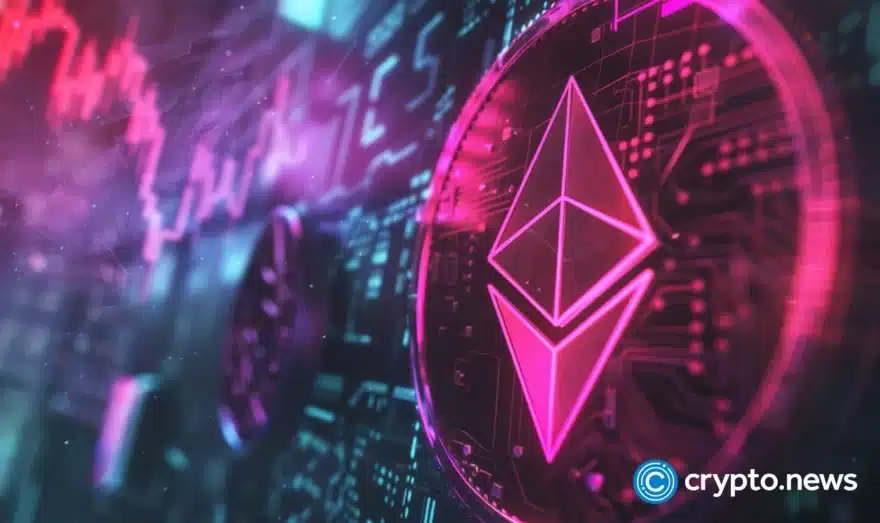Crypto overexposure is putting on-chain treasuries at risk | Opinion

Disclosure: The views and opinions expressed here belong solely to the author and do not represent the views and opinions of crypto.news’ editorial.
Onchain analytics do not lie when they show us a very unhealthy state of DAO treasuries. It was reported that the collective value of DAO treasuries increased by more than $20 billion between November 2023 and March 2024. Optimism’s DAO treasury led the charts, managing around $7.9 billion in assets, followed closely by Arbitrum DAO with $6.9 billion. It’s not a coincidence that this significant uptick of value managed by DAOs was in alignment with the collective spike of the overall cryptocurrency market. And that’s not actually good news.
It’s telling of the fact that on-chain treasuries tend to hold only cryptocurrencies in their reserves exclusively. A recent report by Avantgarde found that almost two-thirds of the 25 largest DAOs held over 90% of their treasury value in their native token. Similarly, Chainalysis estimated back in 2022 that 85% of DAOs’ on-chain treasuries were stored in a single asset. If not the native token, it has also become commonplace for DAOs to hold their treasury funds in Bitcoin (BTC), Ethereum (ETH), and altcoins.
With DAO treasury management influenced by internal voting processes, it can be assumed that voting tendencies are swayed by bullish sentiment, impulsively favoring high APY and “what’s hot” while disregarding massive adjusted risk. As a result, DAOs are becoming overexposed to severe risks during market downturns, impeding their ability to account for operational costs that are managed with fiat currencies.
The importance of financial planning
When a DAO holds the majority of its assets in crypto but incurs operational costs in fiat currencies, it causes an unnecessary dilemma in predicting when to withdraw the crypto to pay them. Welcoming overexposure to its own native asset is a slippery slope for any DAO. The volatility of the crypto market could theoretically trigger a DAO’s financial collapse at any point. It makes financial planning an increasingly difficult task.
That said, there’s a clear need for DAOs to take more deliberate action in appointing treasury managers—or a CFO—who can make adept decisions that are proactive—and not reactive—in weathering the storm of unpredictability.
Add to the mix the persistent number of security breaches, and it’s even more apparent that the practice of placing all eggs in one big token basket is simply not sustainable. To be serious in attempts to grow a treasury, DAOs must start to consider approaches that reduce risk and favor longevity. CFOs who exhibit more foresight, rather than thinking in cycles or sprints, could provide this.
Obviously, fiat isn’t the permanent solution; it’s counterintuitive and could be seen as a backward step in the name of security. Yet, a degree of diversification is undeniably needed. At the most basic level, it’s risk management 101. So, is it time to look to TradFi for inspiration? Assets with crypto-uncorrelated yield could clearly circumvent bearish landmines and hack attacks. While decentralized ideals are, of course, imperative to strive toward, there’s also the argument that web3 is no longer a degen playground that has to avoid long-term products for the sake of pride.
Sensible treasury management must consider risk management with the same gusto that pursues profit maximization and theoretical principles. Ultimately, ecosystem sustainability should be a priority above all. While we know there’s so much untapped potential, as the crypto ecosystem continues to evolve, web3 treasury managers would do well to look further afield in bolstering their reserves and putting assets to work.
Crypto-uncorrelated assets (RWAs) to the rescue
One argument is that the most straightforward option for DAOs that want to mitigate risk but maintain a blockchain-based treasury is to diversify with stablecoins. Stablecoins offer efficient liquidity management that ensures solvency in the case of a market crash or crypto winter. Frictionless conversion into fiat currency would also simplify the process of paying operational costs.
Yet another trend is emerging. Many prominent DAOs, including the likes of Arbitrum, are starting to allocate substantial funds into tokenized treasuries, with products such as Ondo’s USDY, Blackrock’s BUIDL, Cogito’s TFUND, and OpenEden’s TBILL proving favorable. The boom of the RWA market is being driven by the maturation of institutional values in web3. In following fundamental analysis principles more closely, tokenized assets can free DAOs from their current attachment to sentiment-driven fluctuations yet keep treasury value on-chain. In being bound to tried and tested products, RWAs provide scope for strategic treasury management that can see ahead.
Fixed-income assets such as T-Bills, known for their lower volatility and stable returns, provide a measured solution for DAOs that need to eradicate their worn-out, high-risk attitudes. In a high interest rate environment, short-term US T-Bills are currently sitting at a 5% interest rate with a low risk attached to them. They are considered safe bets because they are fully backed by the government, giving investors a safe place to store value. Companies such as Tether, with its stablecoin, have already turned to these kinds of options to collateralize their offerings more transparently rather than using opaque debt instruments.
Path to DAO longevity
Contrarians might argue that DAO treasuries should be able to diversify without turning to TradFi instruments for help. While the likes of blue chip crypto assets have the potential to reduce volatility in a similar way, the reality is that tokenized real-world assets, including stablecoins, provide more instantaneous security for projects that are serious about building long-term products.
Treasury management strategies must embrace the seriousness of the task at hand, which is sustaining project longevity. Onchain capital must be diversified; it is that simple. Crypto will continue to mature and expand its use cases, but as new onchain products are offered, it would be careless for DAO treasury managers not to oblige by evolving their methodologies in alignment.













